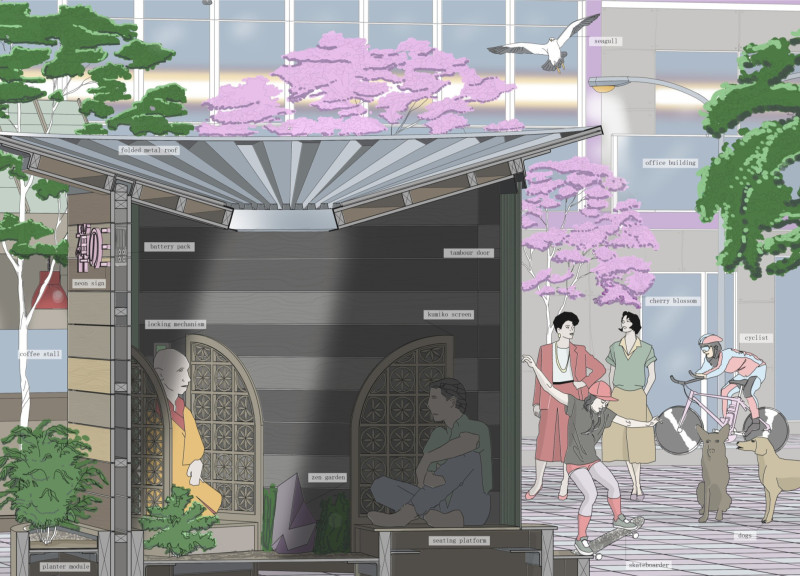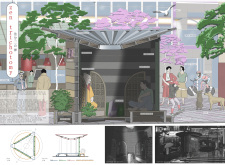5 key facts about this project
Zen Trichotomy is a temporary structure designed to provide a space for meditation within an urban setting. The structure offers an opportunity for individuals to find peace and reflection, even in the midst of a busy city. It accommodates up to three people at a time, creating a dedicated area where users can disconnect from the world and focus on mindfulness.
Spatial Configuration
The layout includes seating arranged at each corner of the hut, all facing a central miniature Zen garden. This design fosters a strong connection between the meditators and the garden, serving as a calming focal point that enhances the overall experience. The seating is integrated into the structure thoughtfully, making it an inviting space for reflection.
Sheltering Elements
To provide privacy while allowing light to enter the space, kumiko screens are used. These traditional wooden lattices create a balance between openness and enclosure. The screens bring a sense of calm to the interior, allowing for light to play softly across the surfaces and enhancing the serene atmosphere necessary for meditation.
Natural Light and Environment
The roof features an open light well that enables natural light to flow into the interior. This design element is influenced by caves found in the gardens at Zuisen-ji, promoting a connection between the indoor space and the surrounding environment. As the light changes throughout the day, it adds to the atmosphere, enriching the sensory experience for those inside.
Modular Structure
Zen Trichotomy is designed as a modular structure, which can be taken apart and relocated according to urban needs. It consists of walls, a roof, and a base, allowing for flexible integration into various city contexts. Additionally, optional elements like planters and benches enhance the space, encouraging interaction with the environment and further supporting individuals in their mindfulness practice.
The design carefully considers how to merge nature with architecture, creating a simple yet effective haven where users can engage in meditation while remaining connected to the dynamic city around them.



















































